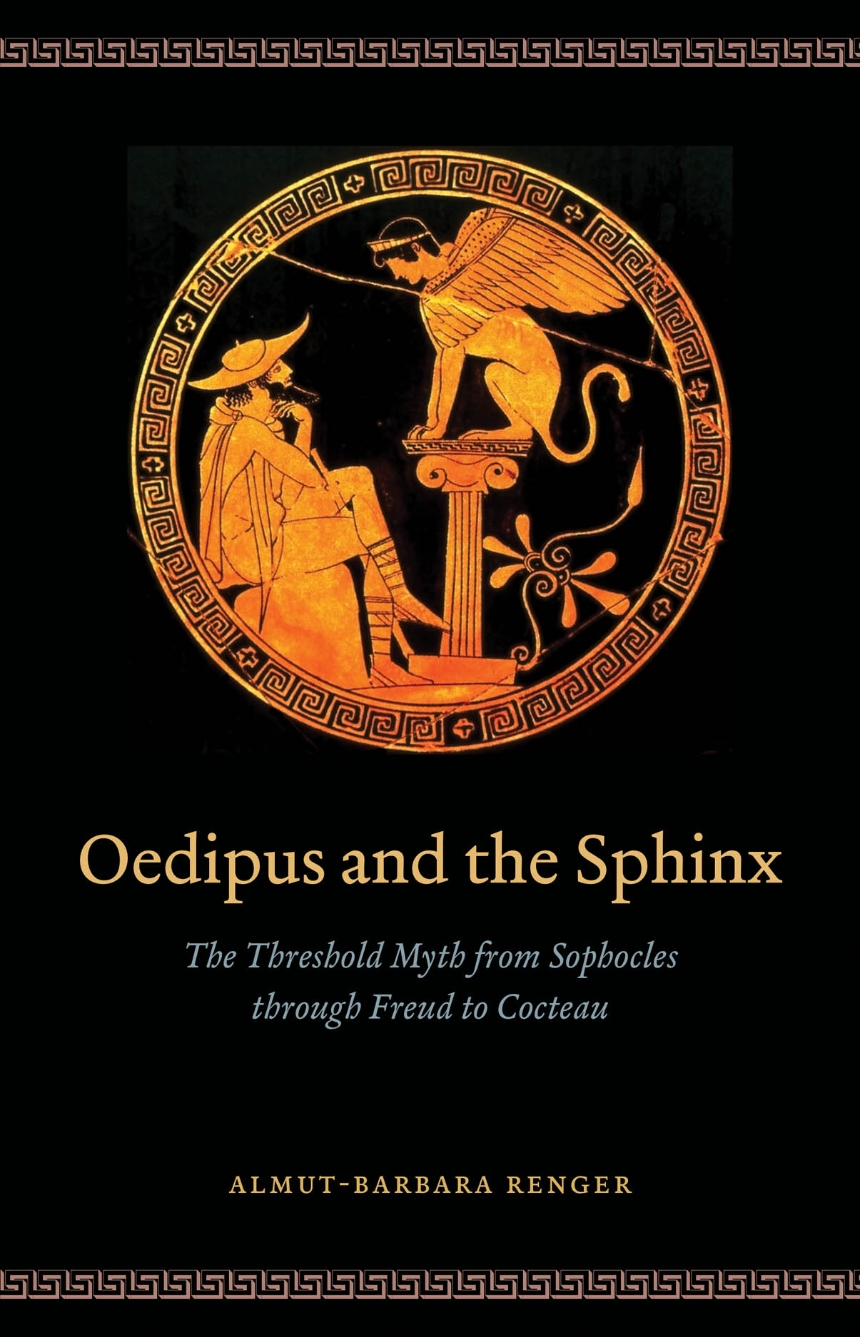Oedipus and the Sphinx
The Threshold Myth from Sophocles through Freud to Cocteau
9780226048086
9780226048116
Oedipus and the Sphinx
The Threshold Myth from Sophocles through Freud to Cocteau
When Oedipus met the Sphinx on the road to Thebes, he did more than answer a riddle—he spawned a myth that, told and retold, would become one of Western culture’s central narratives about self-understanding. Identifying the story as a threshold myth—in which the hero crosses over into an unknown and dangerous realm where rules and limits are not known—Oedipus and the Sphinx offers a fresh account of this mythic encounter and how it deals with the concepts of liminality and otherness. Almut-Barbara Renger assesses the story’s meanings and functions in classical antiquity—from its presence in ancient vase painting to its absence in Sophocles’s tragedy—before arriving at two of its major reworkings in European modernity: the psychoanalytic theory of Sigmund Freud and the poetics of Jean Cocteau. Through her readings, she highlights the ambiguous status of the Sphinx and reveals Oedipus himself to be a liminal creature, providing key insights into Sophocles’s portrayal and establishing a theoretical framework that organizes evaluations of the myth’s reception in the twentieth century. Revealing the narrative of Oedipus and the Sphinx to be the very paradigm of a key transition experienced by all of humankind, Renger situates myth between the competing claims of science and art in an engagement that has important implications for current debates in literary studies, psychoanalytic theory, cultural history, and aesthetics.
136 pages | 4 halftones, 1 table | 5 1/2 x 8 1/2 | © 2013
Reviews
Table of Contents
Introduction
Part One
Oedipus before the Sphinx in Antiquity: On Sophocles
Chapter 1. The Prince of Thebes and the Monster
“With intelligence, not taught by birds”
Face-to-Face: Oedipus before the Sphinx in the Vase Painting of Antiquity
In the Hero’s Account: The monstrum from Seneca to Corneille
Chapter 2. Thresholds: Zone, Transformation, Transition
“Betwixt and Between”: The Threshold Theories of Arnold van Gennep and Victor Turner
A “Double-Formed Monster” (δίμορφον θηρίον): The Sphinx as Threshold Figure in Antiquity
“Œdipe est double”: Hero and Monster in Jean-Pierre Vernant
Coda I: One Monster Confronts Another: Oedipus before the Sphinx as a Warning against Hubris
Part Two
Oedipus before the Sphinx in Modernity: On Freud and Cocteau
Chapter 3. Freud the Riddle Solver and the “Riddle of the Feminine”
Infantile and Juvenile Wish Fulfillment: Freud as κράτιστος ἀνήρ
Perversion and Hubris: Thoughts on the Anecdote of Freud’s “Turning Pale”
Chapter 4. “The night that concerns me is different”: Cocteau’s Distancing from Freud
Between Finding and Invention: “Archaeology” as a Shared Figure of Thought in Freud and Cocteau
“No-man’s-land between life and death”: Cocteau’s “Zone” between Visible and Invisible Worlds
“Where dream and reality merge”: Mythic Personalities between Dream and Reality
“An Oedipus and the Sphinx”: Cocteau’s Machine infernale
Deprived of Characterization by Basic Principles: “Œdipe et le Sphinx” on the Threshold
Coda II: With Sophocles contra Freud: Cocteau’s Work of Enlightenment
Notes Bibliography
Index
